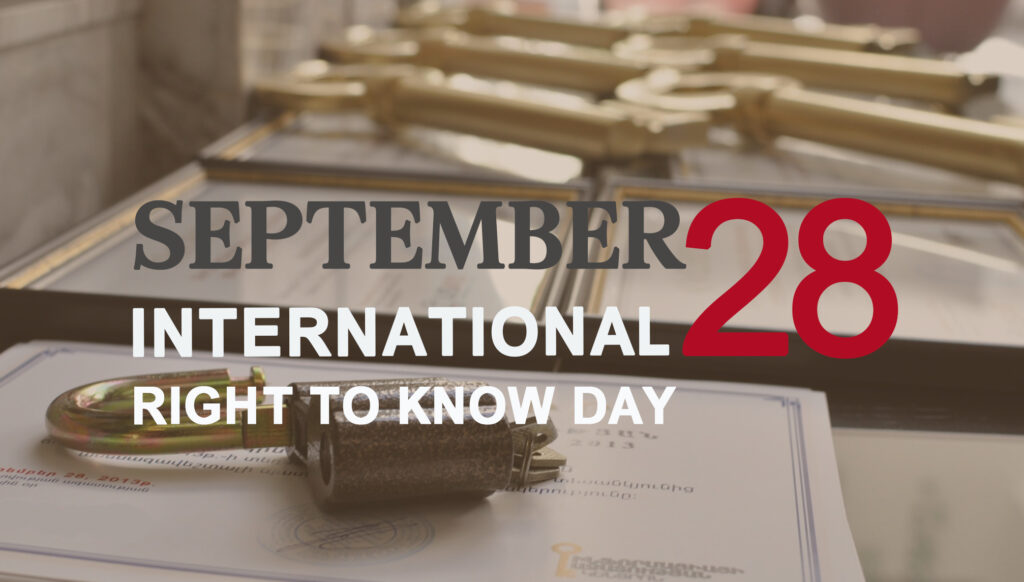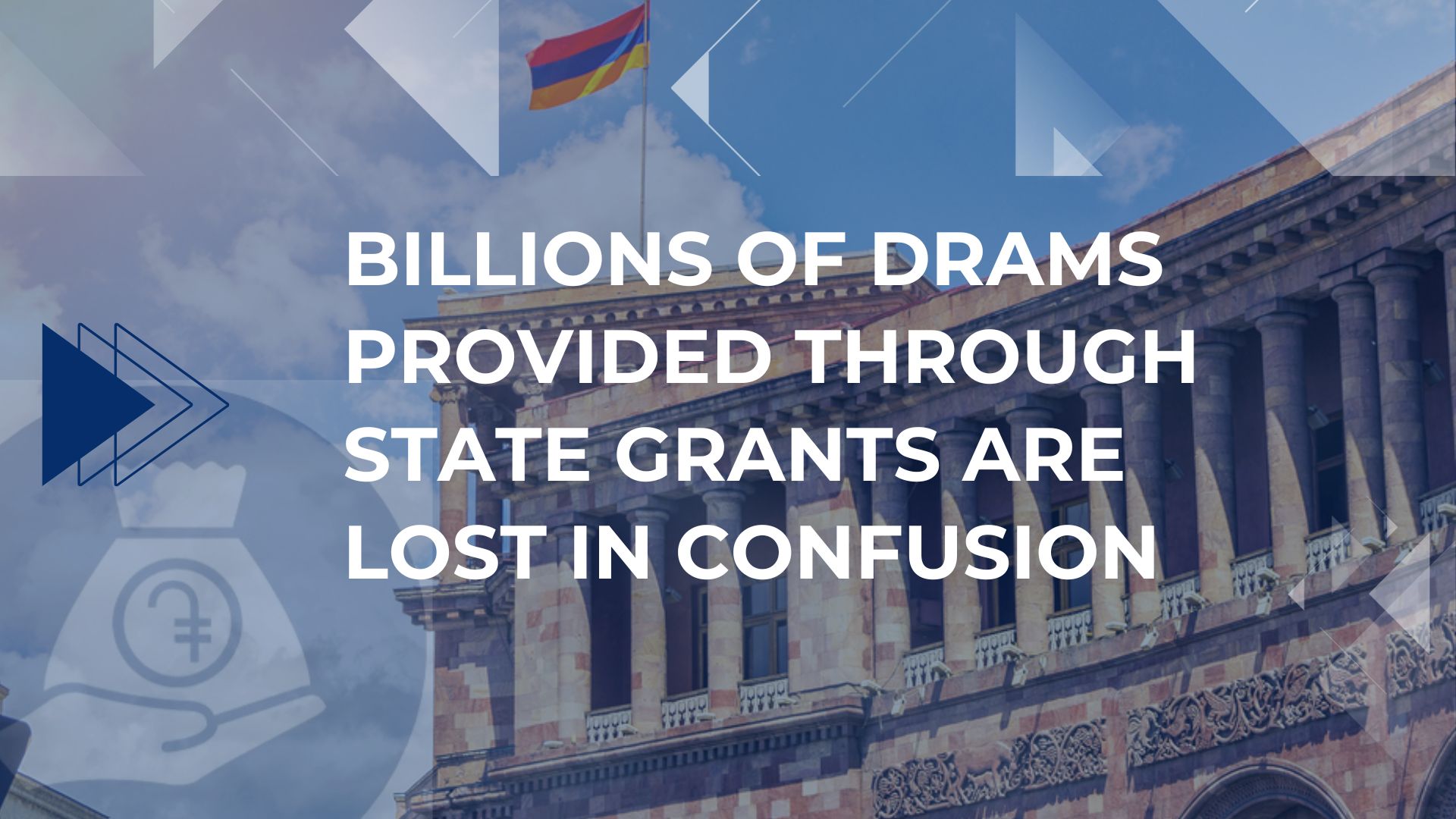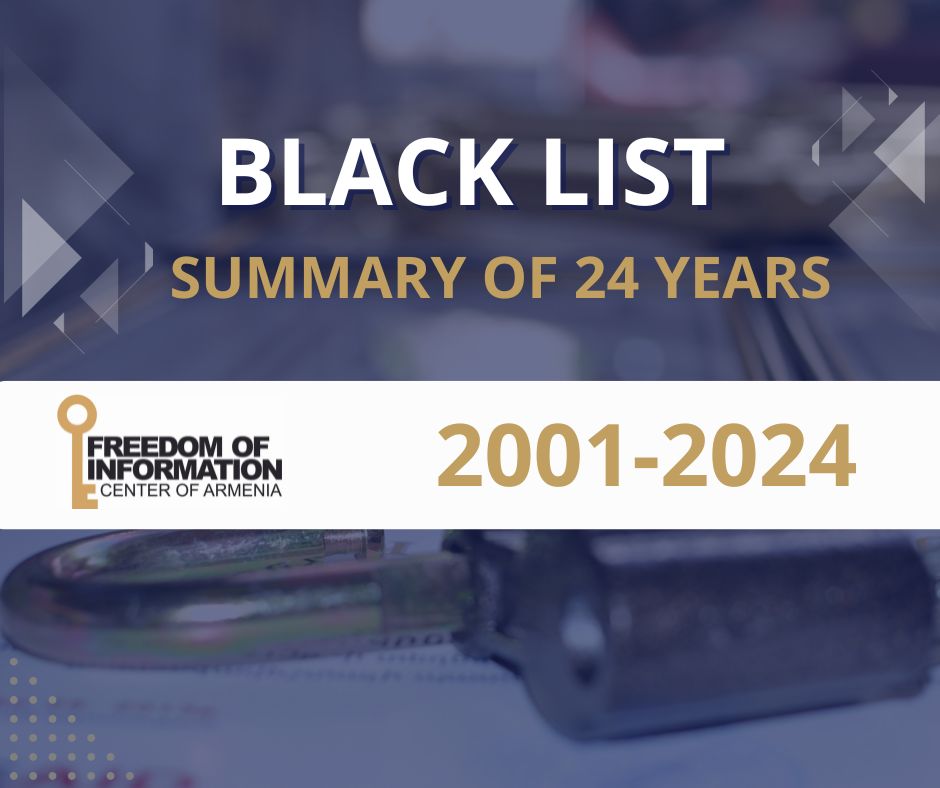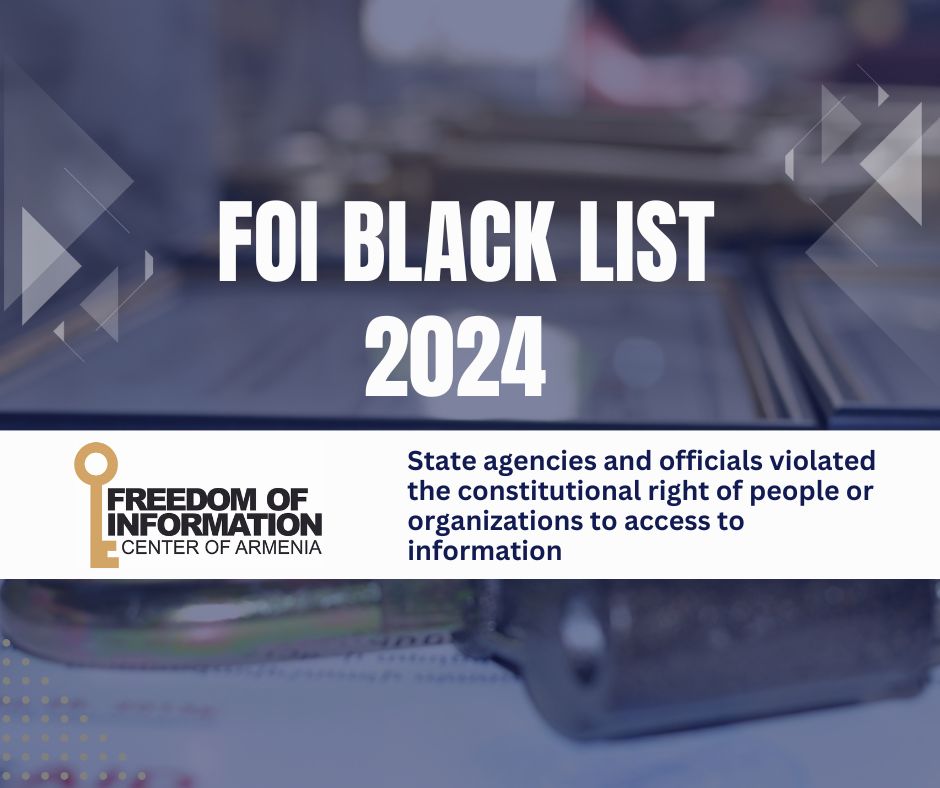September 28 is the International Freedom of Information Day. In this regard, Freedom of Information Center of Armenia summarizes the priority issues and urgent tasks in the field of Freedom of Information in Armenia from May 2018 till now and draws the attention of the Government and civil society to them.
The practice of answering information requests:
- Time frames – 15% of information requests were delayed, violating the 5-day time frame set by the FOI law. On the other hand, compared to 2017, it should be noted that this figure has dropped to 15% from the previous 30%. The FOICA’s daily observations confirm that this is not due to a tendency to hide information, but mainly due to the lack of low quality administration and lack of internal coordination. The government-launched electronic tools, which significantly reduce the time and technical resource costs by increasing the efficiency of citizen-state communication, have had a major impact on the positive dynamics of timing.
- Content of answers – As of 2018 and September 26, 2019, full-time response rates were 56% and 63%, respectively, clearly indicating a positive dynamics compared to 34% in 2017. Although in the early stages of the post-revolutionary period the rate of incomplete responses increased, in 2019 this problem gradually decreased. Compared to 23% of incomplete responses in 2017, in 2019 the rate of incomplete responses was 13%. The proportion of ungrounded responses remained the same – 2%.
- Mute refusals or unanswered requests – There has been a lot of positive development in with regard to mute refusals. In 2017, the indicator was 11%, in 2018 – 1%, and in 2019 – 3%.
- Unjustified and justified refusals – The sharp decline in the volume of mute refusals is evident, but it has also increased the rate of unjustified refusals, making up 3% in 2019, instead of 0 % in 2017. In fact, the decline in the number of mute refusals has led to an increase in the number of unjustified refusals. In some cases this indicates that while some officials have previously avoided providing information and left unanswered information requests, at present the requests for sensitive information are rejected but not properly justified. Justified denials have also increased by 1%, which is also a positive development.
- E-Governance significantly promotes freedom of information – Although the Government of Armenia has launched the e-request platform for electronic information requests, monitoring and daily use of the tool shows that it is not fully utilized. Although the Government has adopted a policy of accepting and discussing electronic inquiries, even without signature, the National Assembly of the Republic of Armenia, while referring to the platform on their official websites, calls for written or solely electronic signature. This practice contradicts the policy adopted by the Government of the Republic of Armenia and hinders the development of e-Government in the Republic of Armenia.
- Proactive transparency. The FOICA observations show that the proactive disclosure rules provided by the FOI law are not properly enforced by all public authorities, and the overall technical and content standards for posting information on official websites are not maintained. As a result, each of the state government bodies proactively publishes information according to the perceptions of the FOI officer and the technical capability of the site. In this case, the consumer receives very different information resources, which makes access to information difficult, sometimes even impossible.








